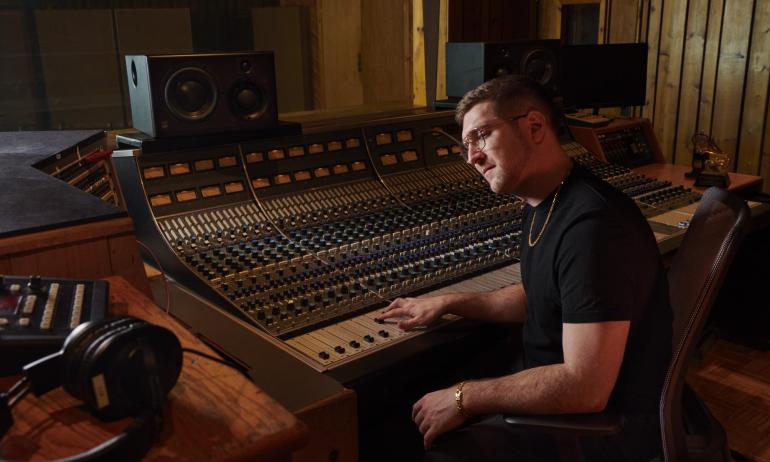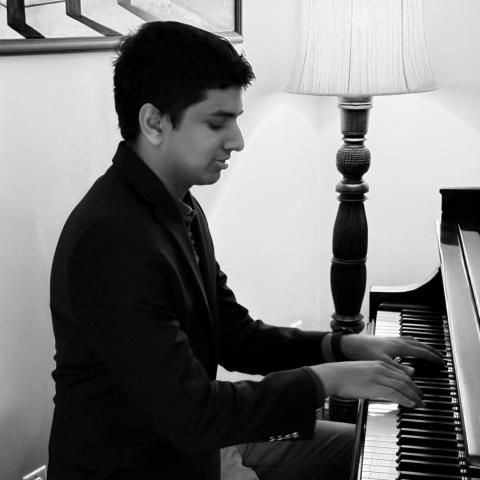Breaking in on Broadway
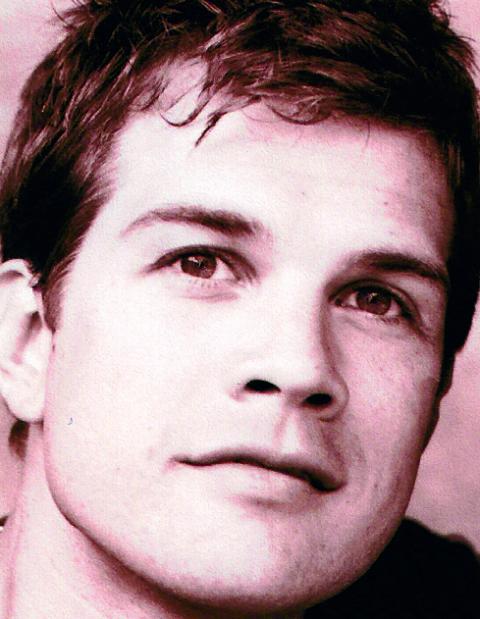
Stephen Oremus ’90
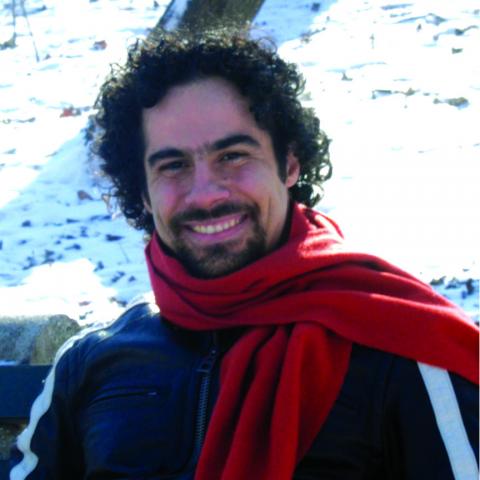
Alex Lacamoire ’95
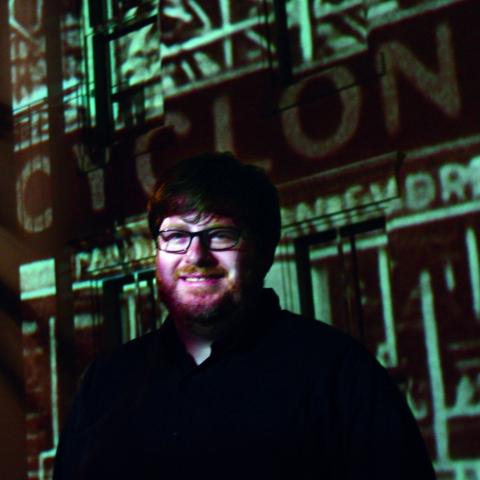
Zak Borovay ’95
Sara Krulwich/The New York Times/Redux
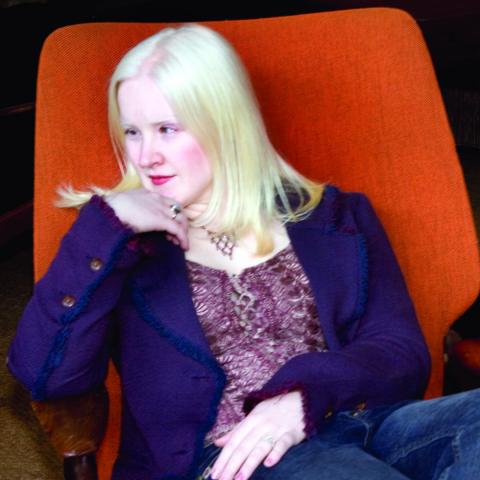
Brooke Fox ’98
Wicked Fun
Over the past decade, Stephen Oremus ’90 has worked as the music director, music supervisor, arranger, composer of incidental music and conductor and keyboardist on numerous high-profile Broadway musicals. Those shows include tick, tick . . . Boom!, The Wild Party, Avenue Q, All Shook Up, and Wicked. Thus far, his work with composer and lyricist Stephen Schwartz on the Tony Award–winning musical Wicked has been a high-water mark in his career. Oremus was onboard in Los Angeles in 2000 for the show’s first readings as well as the workshops, out-of-town previews, revisions, and, finally, the opening on Broadway on October 30, 2003. Oremus worked elbow to elbow with Schwartz writing vocal arrangements and labored with fellow alumnus Alex Lacamoire ’95 penning incidental music, underscoring, and rhythm section charts.
Since Wicked opened, Oremus has conducted countless performances of the show at the Gershwin Theater in New York. As the show’s music supervisor, he currently oversees eight companies of Wicked playing worldwide, including foreign-language productions in Japan and Germany. He even coproduced the German cast recording. “People ask if I get bored after working on Wicked for nine years,” Oremus says, “but it’s thrilling to hear the music that we wrote and arranged being performed.”
Oremus has become adept at multitasking. He was involved with Avenue Q, All Shook Up, and Wicked simultaneously. “All three were being developed simultaneously over the course of three years,” Oremus says. “It was crazy busy. Avenue Q and Wicked went up on Broadway a few months apart.” All Shook Up didn’t have a long run on Broadway but is still performed widely. Oremus continues to act as the music supervisor for the Broadway, London, and national touring companies of the three-time Tony Award–winning Avenue Q, while Wicked continues to offer new opportunities.
Oremus was a film scoring major at Berklee but after graduating gravitated to musical theater after accepting a gig as a pianist at a dinner theater. That led to other theater shows, summer stock productions, and, ultimately, production workshops in New York City. “A few high-profile off-Broadway shows launched things for me,” Oremus says. “I was involved in the creation of a new musical, The Wild Party, written by Andrew Lippa. Working with him cleaning up the vocal parts was a life-altering experience. It told me what I should be doing.”
Oremus first met the legendary Stephen Schwartz after working on The Wild Party, and they began working together on Wicked. “Around the same time, I was hired to be the music director for the second national tour of Rent for a few months,” Oremus says. “That was the first big show I got to do and was the biggest show in the country at the time. The first show I arranged music for was tick, tick . . .Boom! That’s a musical Jonathan Larsen wrote before Rent.”
In addition to his ongoing work with Wicked and Avenue Q, Oremus began working on the music to 9 to 5: The Musical for which Dolly Parton wrote the songs. “I came on after a reading a year ago,” he says. “They were still finding the sound of the show stylistically. I did an arrangement of the opening number ‘9 to 5’ that they liked, so I was asked to come onboard. I assembled a team that included Alex Lacamoire. He wrote the dance arrangements and some incidental music and orchestrations. We are a good team creatively.” The show opened April 7 with Oremus conducting the 19-piece orchestra and playing keyboards.
When asked what’s next, Oremus says, “I don’t look too far into the future. I’m helping to develop a couple more shows. As long as there are shows that I think are really cool and that I can bring something to, I will keep doing it. This has turned into an amazing journey.”
New Heights
So far, 2009 has been a very good year for Alex Lacamoire ’95. He’s currently the musical director, conductor, and keyboardist for the hit musical In the Heights and is also credited as an arranger and orchestrator of the music. On February 8, he won a Grammy for his role coproducing the show’s original Broadway cast album. A month later, In the Heights marked its one-year anniversary on Broadway. A one-year run is significant in the theater world. “These are tough times on Broadway,” Lacamoire told me in his office at the Richard Rogers Theatre. “About 13 shows closed in January. Every one that opened last year when In the Heights opened has folded. I never forget that I am living the dream.”
Even with consumers’ money being tight, In the Heights is packing in audiences. There was a full house on a recent Wednesday night when I saw the show. This poignant story about what “home” really means is set in a Latin neighborhood in the Washington Heights section of New York City. The music alternates between salsa, merengue, hip-hop, and ballads featuring solo and vocal ensembles and lots of dancing. Lacamoire sits perched on the conductor’s stool in the pit with his head at floor level so he can cue both the singers and the 12-piece pit band. He also plays keyboard at various points. The music is very different from anything else you’ll hear on Broadway. Consequently, the demographic of the show’s fans is wide. “There are eight-year-old kids who know the lyrics and 80-year-old Jewish grandmothers who’ve never heard a hip-hop record but love the show,” Lacamoire says.
It was Lacamoire’s keyboard skills and arranging abilities that opened doors for him on Broadway. “I originally wanted to become a jazz pianist,” he says. “But I learned after I left Berklee that I didn’t have the chops for that. But I knew I had a good ear, could read well, play groove stuff, and transpose on the spot.” Toward the end of his Berklee studies, Lacamoire worked at the Boston Conservatory as an accompanist for musical theater singers and served as the assistant music director for the conservatory’s production of Pippin. A later job as an audition pianist at the Huntington Theatre Company ultimately led to work as an audition pianist in New York. There, Broadway composer Stephen Schwartz (Godspell, Pippin, Wicked, The Baker’s Wife) heard him play.
“He took my card and later asked me to be associate music director for his show Working that was going to New Haven,” Lacamoire recalls. “Then he recommended me to his son Scott Schwartz, who directed Bat Boy, and to Stephen Oremus, who was music director for Wicked during its workshop phase.” Oremus and Lacamoire wrote rhythm section arrangements for Schwartz’s hit show Wicked. Oremus later hired Lacamoire to conduct Wicked when he got too busy.
A friend recommended Lacamoire to composer Lin-Manuel Miranda to be the music director for his new production In the Heights. Lacamoire’s Latin heritage (both his parents are Cuban) was a plus for creating the show’s arrangements. “I’d never written a salsa chart before, but I’d heard it all my life” Lacamoire says. “Instinctively I wrote horn lines that adhere to the clave. Maybe it’s in my blood.”
Despite conducting In the Heights eight times weekly, Lacamoire made time to collaborate with Oremus on arrangements for Dolly Parton’s music for 9 to 5. Lacamoire feels blessed. “Everything has come to me, I haven’t really had to hustle,” he says. “I don’t have a long-term plan. I’m just trying to do only the things that bring me joy.”
Bass Designs
Projection designer Zachary Borovay ’95 has been a key behind-the-scenes guy for several Broadway shows and other kinds of productions. The use of computer technology for projections is a hot growth area in the theater world, and Borovay is at the forefront of the field. He worked on the Broadway productions of Rock of Ages, A Catered Affair, and Xanadu, and created designs for the national touring company of Les Misérables and many other types of productions in Las Vegas, Philadelphia, Boston, Los Angeles, and Utrecht, Holland.
A clip on his website explains how a projection designer adds a multimedia layer to the stage scenery with video and/or slides (see www.borovay.com). The images are applied to the scenery and the lighting to enhance the story. He describes it as scenery made with light. If a story line takes place in various locations, projection can instantly transform the scenery. The evocative montages Borovay created for the Broadway show A Catered Affair came from stock photos of the Bronx in the 1950s. His job involves more than finding pictures and creating video, though. He ties the imagery to the physical set and lighting, ultimately increasing the impact of the story the actors are telling onstage.
The multitalented Borovay studied classical bass at New England Conservatory before transferring to Berklee to burnish his electric bass skills as a performance major. The confluence of his interests and upbringing led to his current work. “I grew up on Long Island, and my father was a scenic designer on Broadway,” Borovay says. “When I wasn’t practicing my bass, I was helping my dad build scenery and hanging out in the theater. I’ve always been interested in computer art and video too. After graduating from Berklee, I came to New York City to be a musician and took graphic design jobs to pay the rent.”
Borovay had hopes of taking the bass chair in a Broadway pit orchestra but also dreamed of being a theatrical designer. “I had been working days with computer video, when I went to see a musical revival of the Rocky Horror Picture Show. There was some video design in the show, and at that moment, it crystallized in my head that I could take my knowledge of harmony and melody and rhythm, the theatrical experience I’d had with my dad, and my knowledge of video, and fuse them all together.”
He went to work for the firm Batwin and Robin Productions working on a variety of projection projects before furthering his craft with Wendall Harrington, often referred to as the godmother of projection design. After a few years, he began getting calls to work on his own.
Borovay is very busy in the projection design field and was instrumental in getting the union to represent projection designers as it does other technical professionals in the theater business. But he still thinks about playing bass in the pit. “I was on the sublists of bassists when Rock of Ages was off Broadway,” he says. “I still hope to live out my fantasy of playing in a pit orchestra for just one night.”
That Feeling up Your Back
Among the countless Berklee alumni that have lived out Borovay’s dream of being a pit orchestra player are woodwind players Sal Spicola ’71 and Anders Bostrom ’89. Over the past decade, both have worked steadily for various top productions. For several years, Spicola played in a solo saxophone spot in the production of Miss Saigon. He currently subs for the show Billy Elliot.
Bostrom has played flute, piccolo, and recorder for Shrek: The Musical since it opened in November 2008. Before that, he held a woodwind chair for Tarzan and Bombay Dreams. He explained that the path to gaining a permanent chair involved six years of subwork on The Lion King. “It took a long time before I got my own chair in a show,” Bostrom says. “It is a privilege to be here. You have to sound great every night; you need to be at the top of your game all the time.”
Before coming to Broadway, Bostrom and Spicola were both touring jazz musicians and found the opportunity for great-paying, steady work with a pension appealing. But so too have many other musicians. Bostrom estimates that there are 400 musicians working steadily on Broadway, and each has a list of five subs to cover when they can’t make it. “Competition today is very tough for reed players,” Spicola says. “There are grads here from Juilliard, Peabody Conservatory, and elsewhere who really play their instruments. Some have doctorates in performance and play flute, oboe, and clarinet as if each was their primary instrument. It’s a thrill to play with musicians this good. It gives you that feeling up your back.”
Fringe Benefits
Brooke Fox ’98 was a songwriting major at Berklee and moved to Nashville after graduating. “I spent two years there, but it was hard to get around because I’m legally blind,” Fox says over lunch at a Brooklyn diner. Due to albinism, Fox is visually impaired and doesn’t drive. Both the energy of New York and its public-transportation system seemed like a better fit for Fox. Berklee alumnus and friend Joe Drymala ’98 offered to rent her a room in his Brooklyn apartment, and Fox made the move. “I was still in the singer/songwriter world when I got to New York,” she says. “Joe was a playwright and opened the theater world up to me. I hadn’t anticipated that.” Currently, White Noise, a show for which Drymala wrote the music and lyrics, is in development in New Orleans preparing to open on Broadway in September.
Through networking with theater professionals, Fox met her future husband, Kurt Gellersted, a fellow musician. Gellersted, Fox, and cowriter Will Brumley began writing a musical called Punk in 2002. As they worked at developing the show, a friend suggested they enter it into the New York International Fringe Festival, an annual event for emerging theater talent that features 200 companies for 16 days of performances in Lower Manhattan. “I thought Punk was too grand and serious for that festival,” says Fox. “Fringe is more about comedy, so we thought about entering Williamsburg! The Musical, which was just a concept at the time.”
The story is based on a range of comedic characters Gellersted, Fox, and Brumley had observed in their diverse Brooklyn neighborhood, Williamsburg. They submitted one song and a 20-page script in February and learned in May that the festival wanted to stage their show July 15. For Fox and company it was a golden opportunity to get their work in front of movers and shakers in the theater business. They worked feverishly to finish writing the script and songs, assemble a cast of 14, hire a set designer, and more.
“We flew by the seats of our pants,” Fox says. “We raised money from friends and investors and used our credit cards. It ended up costing about $15,000.” Fox and Gellersted played guitar and keyboards parts and hired a bass player and drummer for their satirical rock score that included traditional Jewish sounds as well as a nod to the blues, Queen, and Gwen Stefani. Somehow, everything came together, and the show really connected with audiences and critics.
“It was the hit of the festival,” says Fox. “We got 30 or 40 reviews including reviews in the New York Post and Variety. It was treated like an off-Broadway show.” This step is just the beginning of the process that shows follow enroute to Broadway. It generally takes several years. Fox and her team are still working on the show. They are planning a CD release party for the cast recording this spring (visit www.williamsburgthemusical.com).
Fox is still new to the scene and is keeping things going on several fronts. She and her cowriters plan to showcase songs from Punk at the New York Theater Barn soon. And Fox’s song “O City” is part of actress Eden Espinosa’s one-woman show Me that will play at Joe’s Pub in New York and the Ford Amphitheatre in Los Angeles.
“You have to keep the momentum going,” she says. “Once you’ve done everything it takes to get one show up, you know you’re going to get asked, ‘What else do you have?’”

